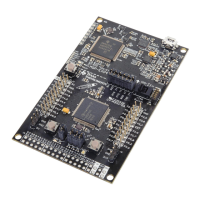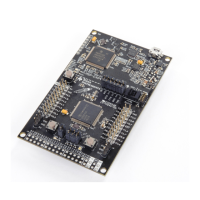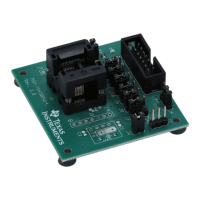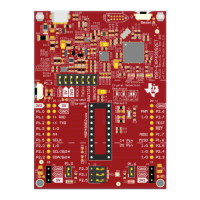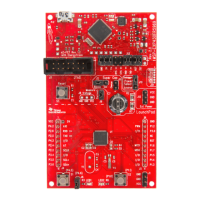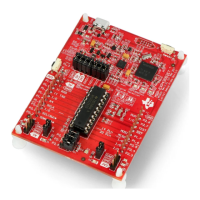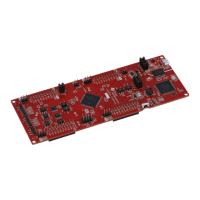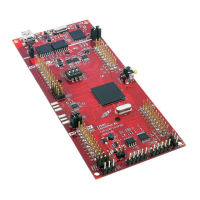134
Time Delay Generation with Timer Compare-Match Feature
Time-bases and delays can be generated in many different ways, ranging from software techniques to
using a dedicated hardware timer. Between software-based methods and hardware-based ones, the
latter is more efficient and effective. This is because software-based methods rely on wasteful CPU-
intensive loops and other resource-consuming processes. Hardware approaches for generating time-
bases and delays are smart choices because the prime job of a timer is to count ticks or measure time.
Yet within hardware-based methods, there are several techniques and tricks. We can choose between
polling a free running timer or using interrupts to get things done in a more real-time sense. We have
seen previously that we can use timer interrupts to time events. Here we will also see the same but
this time compare-match interrupt is used instead of timer interrupt.
Code Example
#include <msp430.h>
void GPIO_graceInit(void);
void BCSplus_graceInit(void);
void Timer0_A3_graceInit(void);
void System_graceInit(void);
void WDTplus_graceInit(void);
#pragma vector = TIMER0_A0_VECTOR
__interrupt void TIMER0_A0_ISR_HOOK(void)
{
P1OUT ^= (BIT0 | BIT6);
__bic_SR_register_on_exit(LPM0_bits);
}
void main(void)
{
/* Stop watchdog timer from timing out during initial start-up. */
WDTCTL = WDTPW | WDTHOLD;
/* initialize Config for the MSP430 GPIO */
GPIO_graceInit();
/* initialize Config for the MSP430 2xx family clock systems (BCS) */

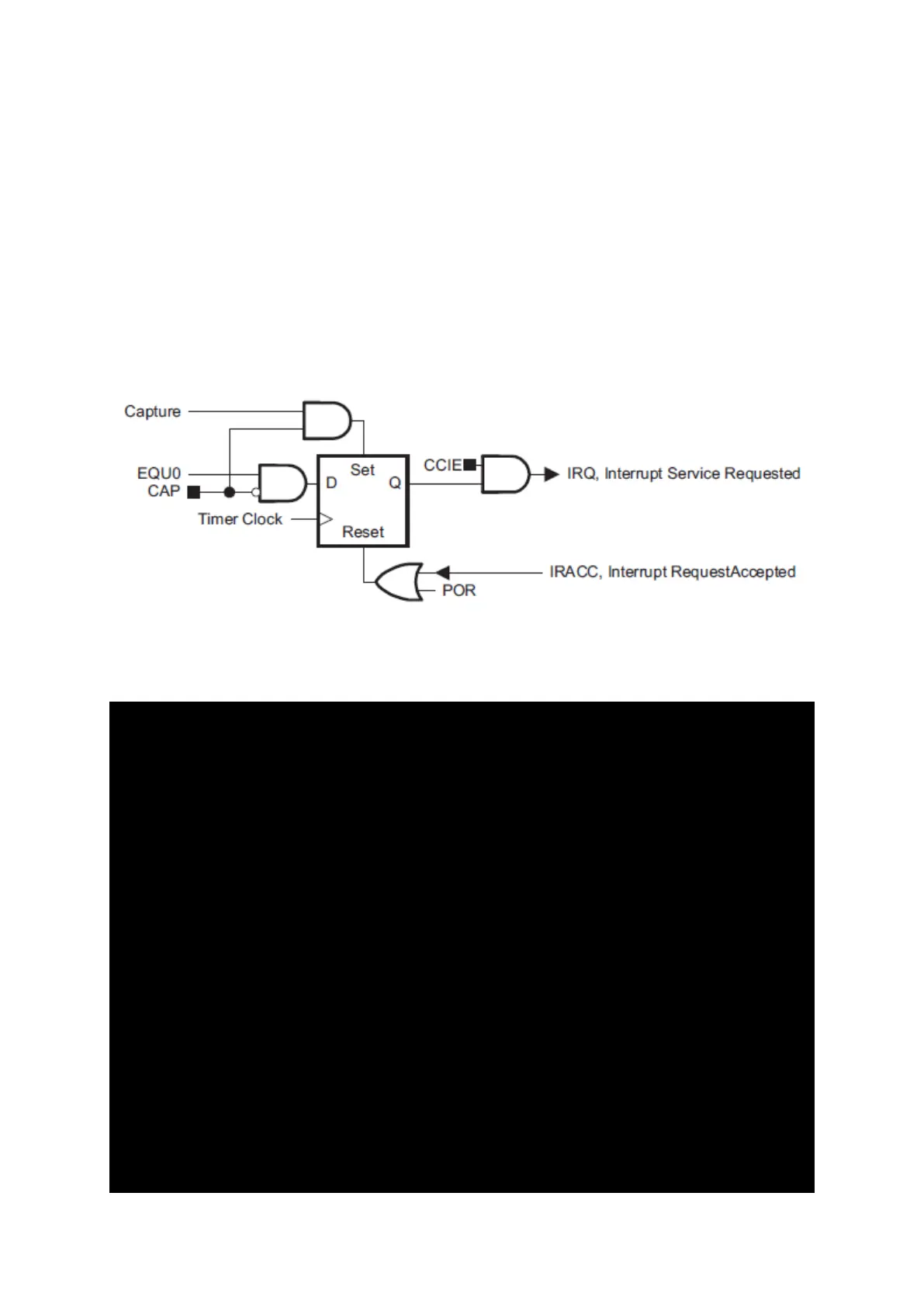